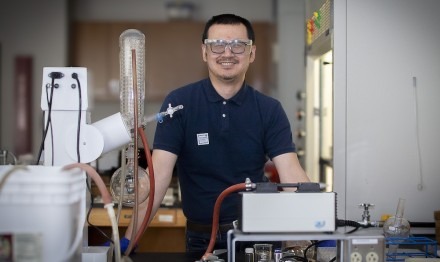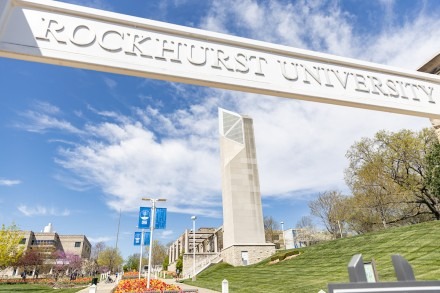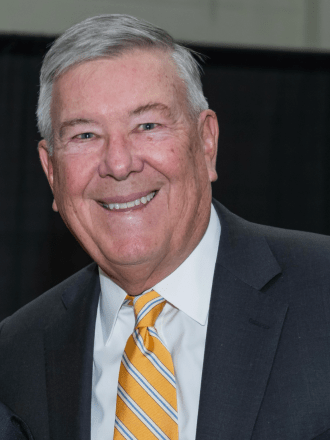Innocence Project Course Gives Students New Perspective on Criminal Justice System

One of the hallmarks of the Jesuit education is using one’s knowledge in service to the world and to others in it.
For students at Rockhurst University, there is no shortage of courses that pair learning with Jesuit education’s goal of encouraging students to use their gifts in service to others.
Students in one course, however, apply that same principle in a different way. Each spring, a handful of students in the University’s criminal justice program are invited to be part of the Innocence Project course. This small group spends their semester reviewing a case where an incarcerated person has raised questions of innocence. Their goal is to review the case and report to the Kansas City-based Midwest Innocence Project whether they believe a case for innocence exists.
“The cases are initiated typically by the individual who is in prison who has been convicted and incarcerated stating that they are innocent,” said Craig Watz, J.D., assistant teaching professor of criminal justice. “It’s not that there was some procedural error on the part of the police or the government or the criminal justice system — these are actual claims of innocence.”
Schools across the U.S. have similar programs, mostly as part of their law school. Rockhurst is one of a small number of such programs where undergraduate students take on the work. Watz said he believes these students are ready for the challenge, though he does help set expectations.
“This is a real person,” he said. “And we emphasize to the students — it's one thing to read a textbook and take a test and try to do well on an exam to get a good grade. Here you're talking about someone's life. By putting forth the effort, by paying attention to detail, by working collaboratively as a group, you have the potential to change someone's life forever.”
From a teaching perspective, Watz said the experience is invaluable, both as a peak into the legal process and as a way to make students confront the sometimes-difficult questions presented by the criminal justice system.
“I think the initial interest in offering this class was not that we are going to necessarily exonerate somebody,” he said. “For the students, it’s about showing how the criminal justice works, both good and bad.”
Emeri Pasley, a senior criminal justice major, said she was honored to be invited to be part of the course in spring 2024, having heard of the course during her college search.
“I knew only a handful of students were asked to join, and this project was one of the reasons I chose to come to RU as a freshman,” she said.
The Innocence Project is a crash course in legal procedures — students must sign a form saying they do not have a conflict of interest. They can’t Google details of the case. They must maintain confidentiality. All those measures help ensure an impartial and thorough review of the case files — interviews, court transcripts and other official documents that help them piece together the crime itself and then evaluate the case for innocence for the Midwest Innocence Project.
Pasley plans to pursue law school after earning her undergraduate degree. She said being part of the class did nothing to scare her from the profession.
“Having this kind of work under my belt has made me a standout candidate for law school and has given me invaluable insight into the kind of work I could be doing for a career,” she said.
Not all of the students are necessarily law school bound. Shana-Kay Durrant, who was part of the course in spring 2024, said being part of that process gave her a better understanding of all of the factors that go into building and prosecuting a case, as well as why it’s important for organizations or professionals to act as a check on due process.
“As a criminal justice student, I felt that this was my chance to play a role, because I'm a strong believer in criminal justice reform,” she said.
The sense that students were part of an important process was palpable in spring 2024, when they for the first time reviewed a life sentence case.
“I wouldn’t call it pressure,” Durrant said. “It was motivation.”
She said the group would meet for three hours each week in class and sometimes up to four additional hours a week outside of it to talk about and discuss the case. Watz said that process of collaboration and deliberation is key to a successful review and to growing the sorts of skills that students will need no matter where their career takes them. And, hopefully, a heightened sense of their responsibility to others.
“ I think one of the things that I really like, and I see this in the students, is ownership in what they believe to be necessary in our society,” Watz said. “These students are looking at this individual and they're saying that we want to do what's right for this person, for the society, for the criminal justice system, all of that.”
This article originally appeared in the winter 2025 issue of Connections magazine published by the Association for Jesuit Colleges and Universities.



